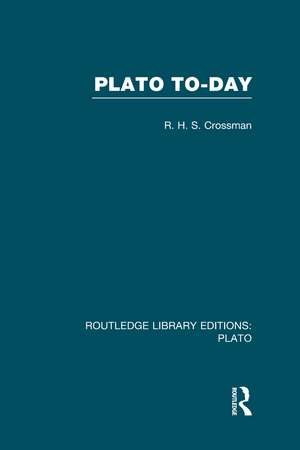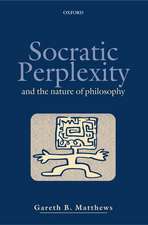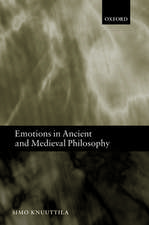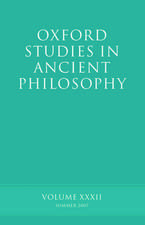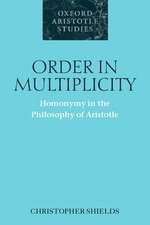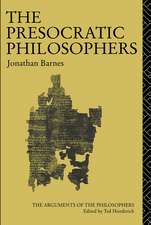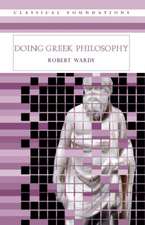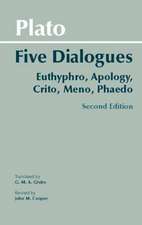Plato Today (RLE: Plato): Routledge Library Editions: Plato
Autor R Crossmanen Limba Engleză Hardback – 10 sep 2012
Din seria Routledge Library Editions: Plato
- 30%
 Preț: 8421.22 lei
Preț: 8421.22 lei - 13%
 Preț: 294.77 lei
Preț: 294.77 lei - 23%
 Preț: 320.36 lei
Preț: 320.36 lei - 38%
 Preț: 766.12 lei
Preț: 766.12 lei - 37%
 Preț: 625.16 lei
Preț: 625.16 lei - 34%
 Preț: 826.15 lei
Preț: 826.15 lei - 54%
 Preț: 417.04 lei
Preț: 417.04 lei - 18%
 Preț: 891.22 lei
Preț: 891.22 lei - 36%
 Preț: 830.28 lei
Preț: 830.28 lei - 38%
 Preț: 765.77 lei
Preț: 765.77 lei - 39%
 Preț: 680.13 lei
Preț: 680.13 lei - 33%
 Preț: 1002.69 lei
Preț: 1002.69 lei - 25%
 Preț: 324.59 lei
Preț: 324.59 lei - 13%
 Preț: 306.62 lei
Preț: 306.62 lei - 37%
 Preț: 624.79 lei
Preț: 624.79 lei - 36%
 Preț: 625.86 lei
Preț: 625.86 lei - 34%
 Preț: 767.38 lei
Preț: 767.38 lei -
 Preț: 497.96 lei
Preț: 497.96 lei - 35%
 Preț: 1001.43 lei
Preț: 1001.43 lei - 34%
 Preț: 765.77 lei
Preț: 765.77 lei - 18%
 Preț: 1286.46 lei
Preț: 1286.46 lei
Preț: 766.12 lei
Preț vechi: 1155.72 lei
-34% Nou
Puncte Express: 1149
Preț estimativ în valută:
146.62€ • 152.50$ • 121.04£
146.62€ • 152.50$ • 121.04£
Carte tipărită la comandă
Livrare economică 15-29 aprilie
Preluare comenzi: 021 569.72.76
Specificații
ISBN-13: 9780415624008
ISBN-10: 0415624002
Pagini: 216
Dimensiuni: 156 x 234 mm
Greutate: 0.56 kg
Ediția:1
Editura: Taylor & Francis
Colecția Routledge
Seria Routledge Library Editions: Plato
Locul publicării:Oxford, United Kingdom
ISBN-10: 0415624002
Pagini: 216
Dimensiuni: 156 x 234 mm
Greutate: 0.56 kg
Ediția:1
Editura: Taylor & Francis
Colecția Routledge
Seria Routledge Library Editions: Plato
Locul publicării:Oxford, United Kingdom
Public țintă
General, Postgraduate, Professional, and UndergraduateCuprins
Introduction 1. Plato and the Modern World 2. The Historical Background 3. Socrates 4. Plato 5. Plato Looks at British Democracy 6. Plato Looks at British Education 7. Plato Looks at the Family 8. Plato Looks at Communism 9. Plato Looks at Fascism 10. Why Plato Failed 11. The Modern Plato Once More. Epilogue. Index
Descriere
Plato was born around 2,500 years ago. He lived in a small city-state in Greece and busied himself with the problems of his fellow Greeks, a people living in scattered cities around the Mediterranean and the Black Sea. In all he tried to do for the Greeks he failed. Why, then, should people in the modern world bother to read what he had to say? Does it make sense to go to a Greek thinker for advice on the problems of an age so different from his own? To anyone who has questioned the relevance of Plato to the modern world Richard Crossman’s lively book provides a brilliant reply. The problems facing Plato’s world bear striking parallels to ours today, the author maintains, so who better to turn to than Plato, the most objective and most ruthless observer of the failures of Greek society. Crossman’s engaging text provides both an informed introduction to Greek ideas and an original and controversial view of Plato himself.
